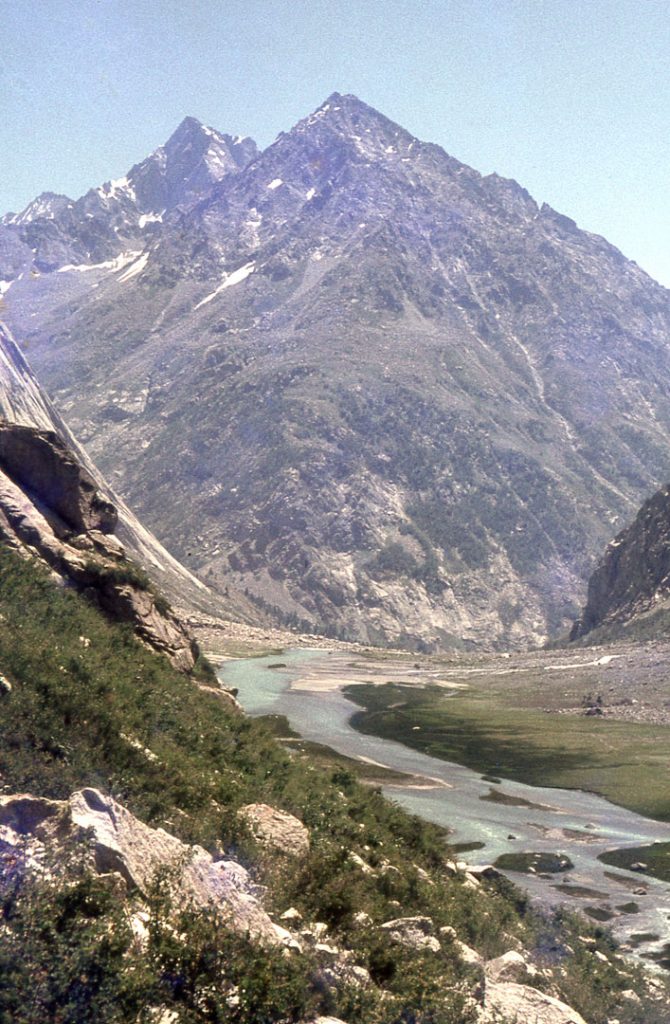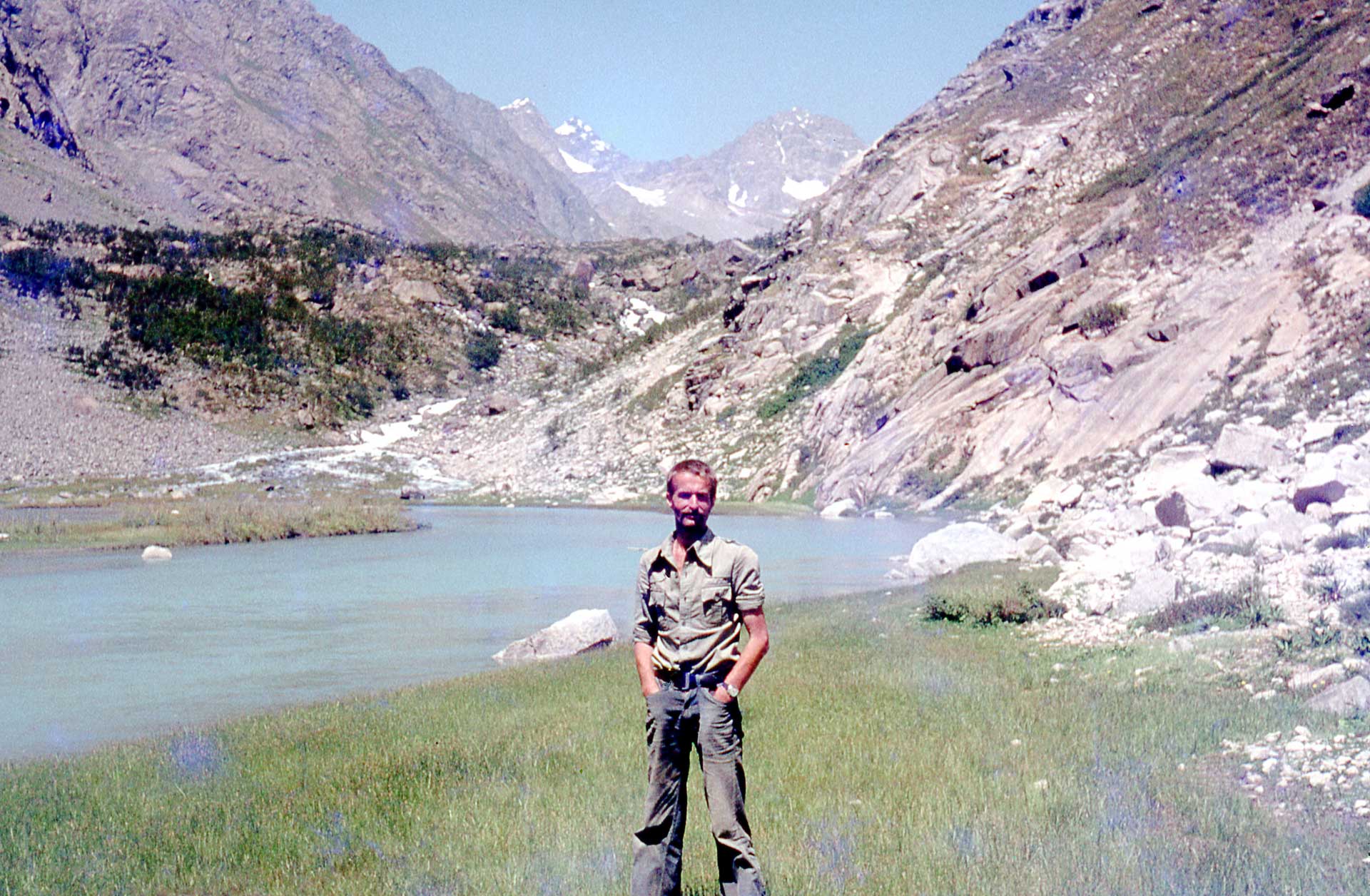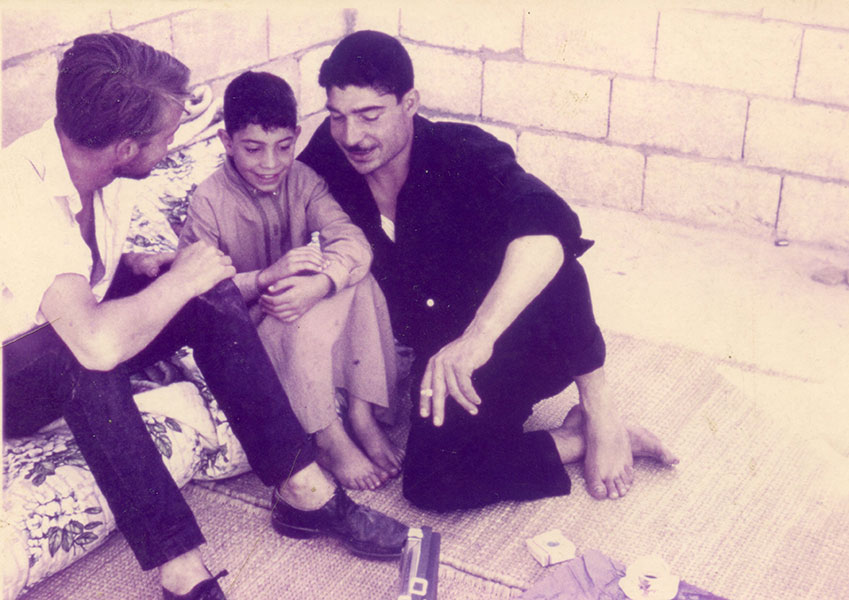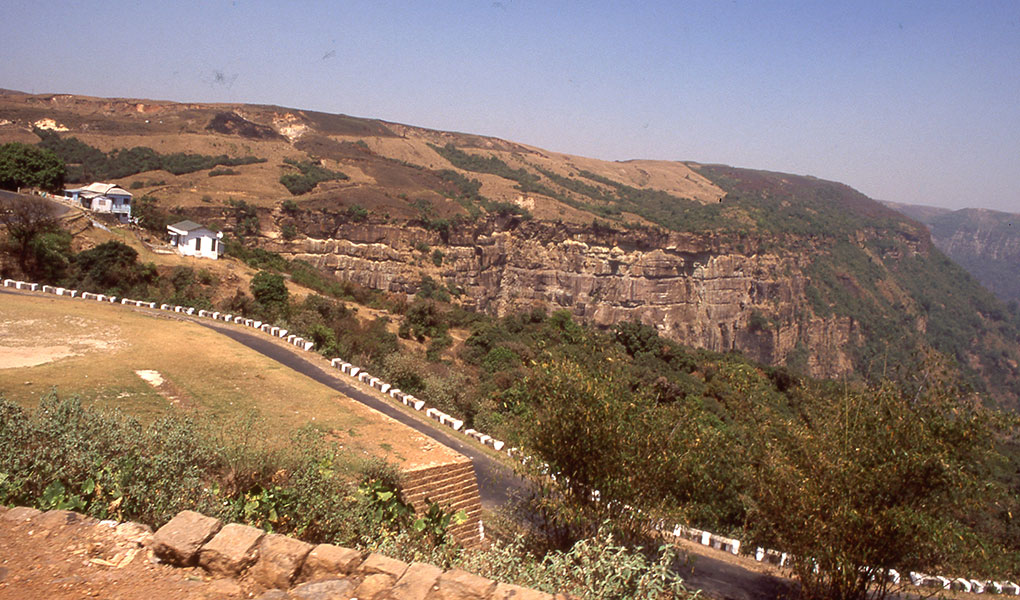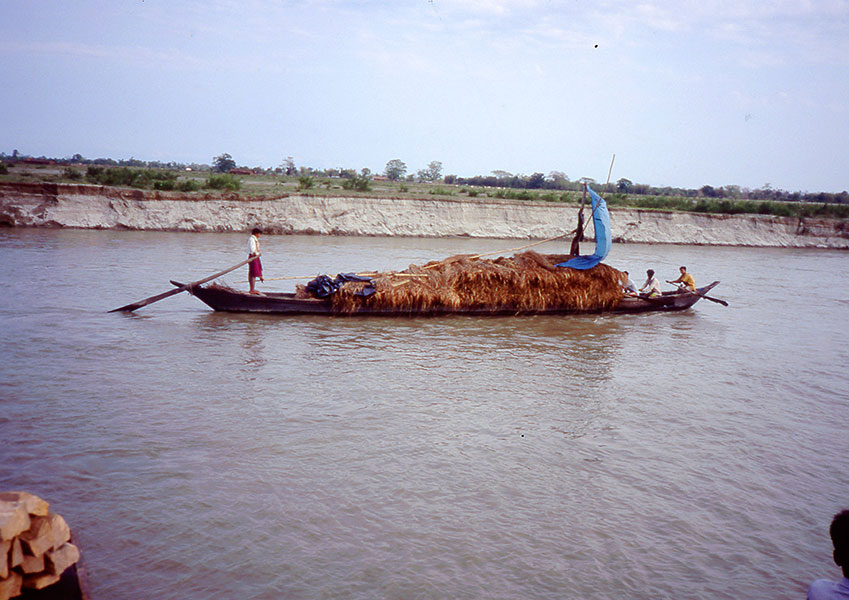12. On Failing To Arrive

11. The First New Train To Pakistan
July 9, 2020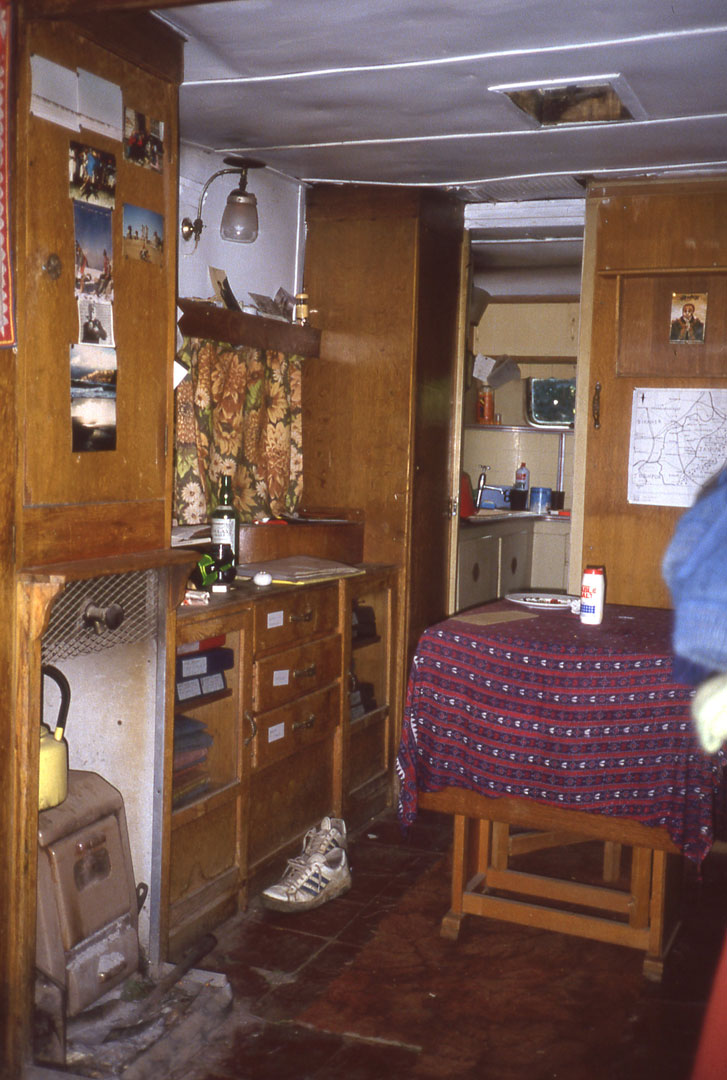
13. Trailer Trash
July 23, 2020P eshawar was in heavy rain. Next day I caught the train up the Khyber Pass to Landi Kotal, but floods halted it at Jamrud, the beginning of the pass. While waiting, I chatted with the engine's crew who offered me a lift back in the steam locomotive, handing over the controls but taking them back before we crossed the airport runway.
The floods having cut the bridge towards Swat, the bus simply got on the line and crossed the railway bridge. By evening we'd reached Kalam, at the head of the valley, a small place of wooden mosques and totem-like headstones. Motorable tracks advanced a little further, but beyond was trekking country. It was a rugged landscape above orchards of walnuts and apricots, ripe apples being harvested, green rushing torrents and snow peaks. The local men wore salwar-kameez, round felt hats, tough sandals; most shouldered rifles, bandoliers of bullets. Kalam had a cheap doss house, an air of romance. I hung around, took day walks up other valleys, once returning with a ragged teenager wanting 2 rupees for a bus fare. I gave him one – he could find the other. He produced a Beretta pistol, well-greased. “500 rupees?” “No thanks!”
I wanted to go further, but not alone. Then Johann turned up. Austrian, in his early twenties, keen to explore, he was used to mountains. We walked to Utrot, bigger than Kalam with more guns, where a dark German with a flared, Nureyev nose ran a food joint, then, next day, towards Gabral. Older men were discouraging. There were dacoits, the people ahead were 'jangli admi' – wild men. We decided to head up Ushu valley instead, cross the high pass then descend towards Chitral. A tough trek; I worried him, being ten years older. He worried me in not wanting to carry food. It might be a week.
Johnann bought fishing line and hooks. We set off, mapless and unarmed in that land of guns, through resinous conifers, past fields of maize and potatoes ripped away by floods. The womenfolk, boasting many plaits, were not too strict about purdah. Men were restoring the track. A crazy boy briefly joined us, always smiling, distracted eyes, throwing aimless stones. Ushu, six miles on, had a tea-house run by a smart, Urdu-speaking kid. We felt naked amongst a clientele bearing rifles or shotguns. I was finding it hard to keep up with Johann. Perhaps he was right. We overtook four men heavily laden with tobacco bound for a village three days ahead, then passed three more porters, feet bandaged in rags, carrying rock salt. One complained of a sore toe, once broken and badly set. I dressed it. Later, they passed us and he wanted medicines for his eye, back, tooth.
At Matelthan, the last chance of food, I bought dry roti, onions and raw sugar. Johann still refused. Beyond lay occasional drifts of stagnant snow. A woman bore her load on the aluminium frame of some foreigner's rucksack. By evening, the valley deserted, we halted in a group of roofless huts and Johann went fishing. It was growing dark when I joined him. Fishless, under bright moonlight we shared a joint.
The floor of the valley was stepped. Landslides had blocked the river at intervals, slowing its flow to a meander over a grassy plain before it rushed down another rocky obstruction onto the next terrace. We left early up one of the steep dams, looking back at Falaksher's snowy peak. Johann tried fishing again, but immediately lost his spinning lure. We could see large trout. Some boys came to fish, bearing balls of mud full of worms for bait. At Mahodand lake he tried using what bait we could find, weighting the line with a coin, my metal kurta studs. Again the line broke - rotten gut, or badly knotted? A couple of armed youths on ponies suggested meat for bait. What meat? We climbed the next dam to another plateau. Johann wanted to fish: an excuse: he was tiring. I accepted an early halt and we tried again. I caught a long, thin bottom-feeding fish – not much flesh to it – and cooked it among the rocks where we planned to sleep. Running out of water, we tossed a coin for who would venture into the dark for more. He lost and staggered back to the river.
Next morning a steep ascent through birch wood led onto another plateau. A shepherd said we might find food at Barra Bengal village; they only offered tea. We struggled on then settled in the shade beside a field of eidelweiss.
'It is 2.30. We've been here an hour. Johann is asleep as I write. I can't see him making the pass by tomorrow night and we have very little food. The choughs are making quite a row. Clouds are collecting down the valley – rain? That's all we need! This is rock-strewn meadow, the sound of goats here and there, the distant roar of the river.'
Perhaps Johann wasn't sleeping, only thinking. He said he must go back down. I persuaded him a bit further, carrying his bag up another few rocky stages; the last dam was wholly barren, blacker rock, hard going. It was getting dark, the valley gaunt and eerie in the miasma, cold, patches of snow by the river. We stopped. I put on all my clothes and, having smoked a joint, tried to sleep but my head was too busy. The moon rose, still bright, adding to the desolation.
Then it was Friday 13th. A good day for failure. Johann had altitude sickness. We descended the rocks, me with his rucksack in front. Hard to see the path. Five men, four with rifles, were coming up. I was nervous. We exchanged salaams and they said it was only one day's journey to Larspur, well beyond the pass. So close!
Even the descent was tough. I felt sorry for Johann, humiliated. At Kalam he left immediately for Peshawar. I stayed, hoping for another companion to complete the trek. A camp young Berlinner appeared. He was up for it. I knew the type: he would make it. We planned to leave in a couple of days...and then the rain moved in again.

